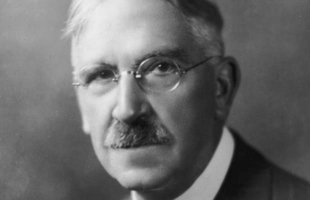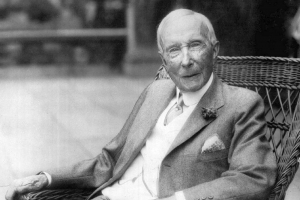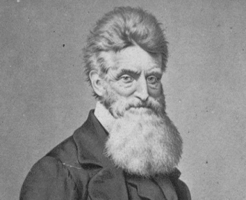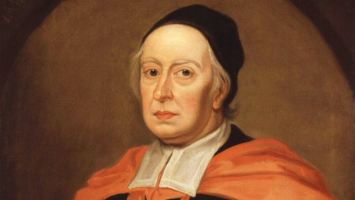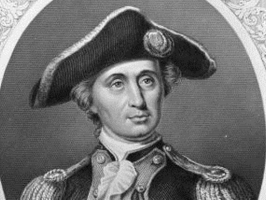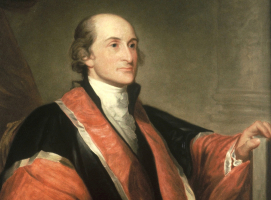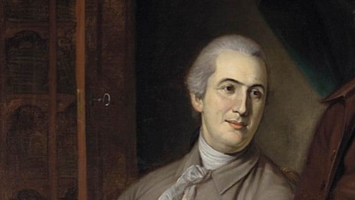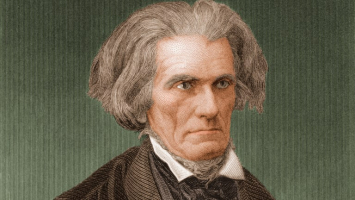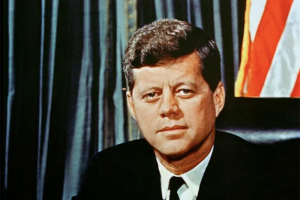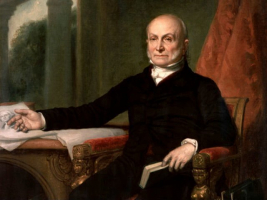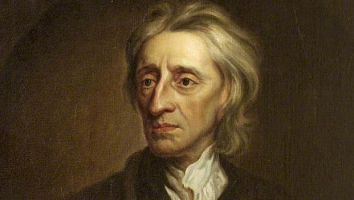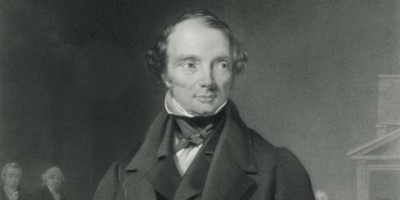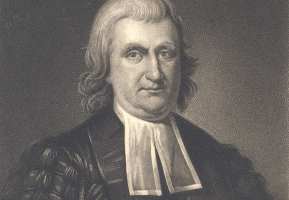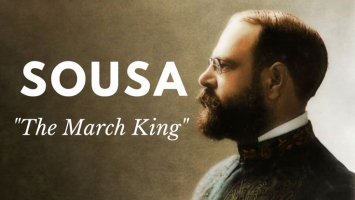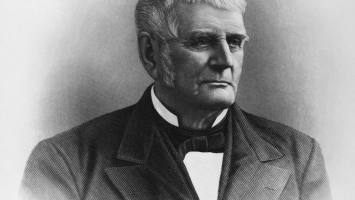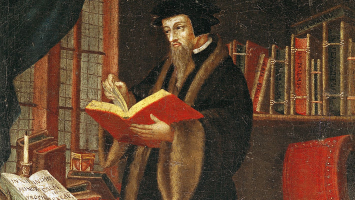Top 7 Interesting Facts about John Milton
One of the most well-known English authors of all time is John Milton. His body of work contains some of the most sophisticated and exceptional poetry and ... read more...prose ever produced. Let's look more closely at the life of one of England's greatest authors and learn some interesting facts about John Milton.
-
Although John Milton produced several works throughout his lifetime, few have had the same influence as Paradise Lost. An interesting fact about John Milton is that one of the most intricate and beautiful poems ever written in Paradise Lost. The epic ten volumes of the book, which was first published in 1667, include more than 10,000 lines of verse. The poem includes a number of theological topics, such as Satan, the temptation of Adam and Eve, and the fall of man.
The epic poem Paradise Lost was written in blank verse. Ten books and more than ten thousand lines of poem make up the original edition, which was published in 1667. In 1674, a second edition appeared with slight changes throughout and was divided into twelve volumes (similar to Virgil's Aeneid). It is regarded as Milton's crowning achievement and contributed to his emergence as one of the greatest English poets of all time. The poem is about the biblical account of the Fall of Man: Satan, a fallen angel, tempting Adam and Eve, and their expulsion from the Garden of Eden.
Milton authored Paradise Lost entirely by dictation with the assistance of amanuenses and friends after being blind in 1652. The epic poem was also written despite his frequent illness from gout and emotional pain following the early deaths of his second wife Katherine Woodcock in 1658 and their infant daughter.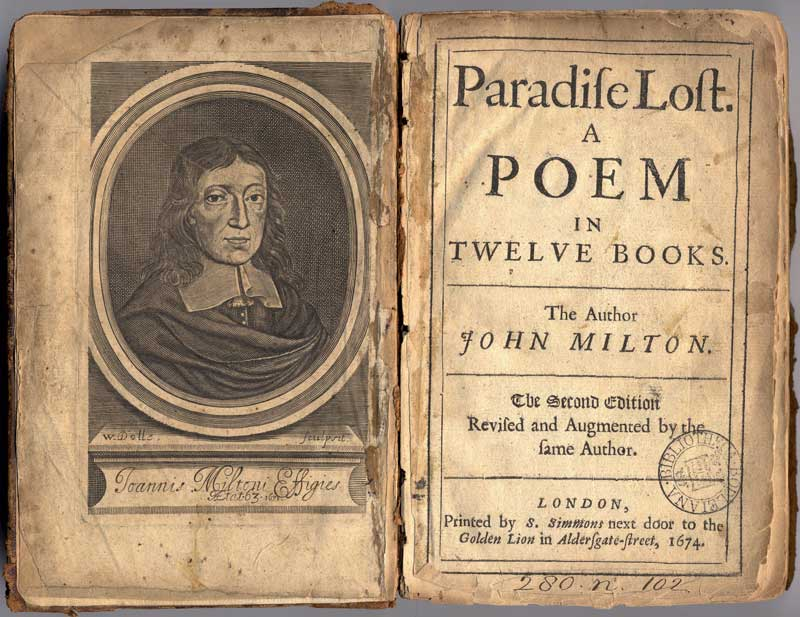
Photo: humanities.drury.edu Video: Empire of the Mind -
John Milton's reputation as a lady's man throughout his lifetime is an interesting fact about John Milton. When Milton was younger, he was reportedly incredibly gorgeous, and the women in his life were aware of this fact.
John Milton was married three times. He was least happy with his first wife, Mary Powell. After these controversies, Milton soon found himself involved in a family dispute. After getting married to Mary Powell in 1642, Milton was abandoned by her a few months later when she went back to live with her family in Oxfordshire. It is unknown why they split up, although it's possible that Mary followed her family's tradition of supporting the monarchy while her husband became increasingly anti-royalist. Or possibly there was a lack of understanding due to their different ages—she was 17 and he was 34. Milton may have been preparing for marriage to another woman throughout her absence of about three years. But when Mary came home, it was clear that they had resolved their issues. A son, John, passed away at the age of one, but three daughters, Anne, Mary, and Deborah, were born. Following the birth of Deborah in 1652, Milton's wife passed away.
Milton did not show contempt for trivial matters while enduring his tribulations with a lovely serenity and perseverance. Deborah, his only loving and devoted daughter, praises him for being upbeat and calls him the life of the party. After a little over a year of marriage, his second wife Katherine Woodcock, to whom he pays a lovely homage, passed away. Elizabeth Minshull, his third wife, who he wed in 1664, lived beyond him by more than fifty years.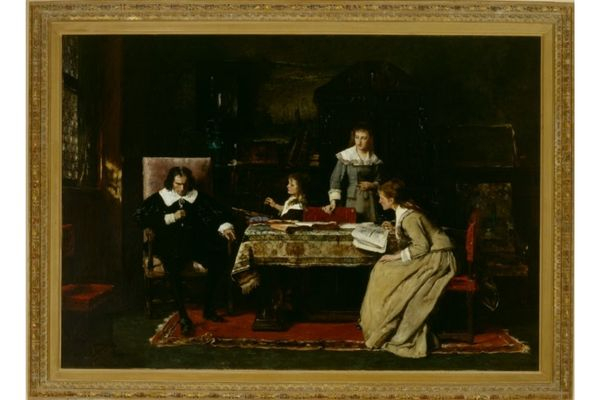
Photo: usedbooksinclass.com 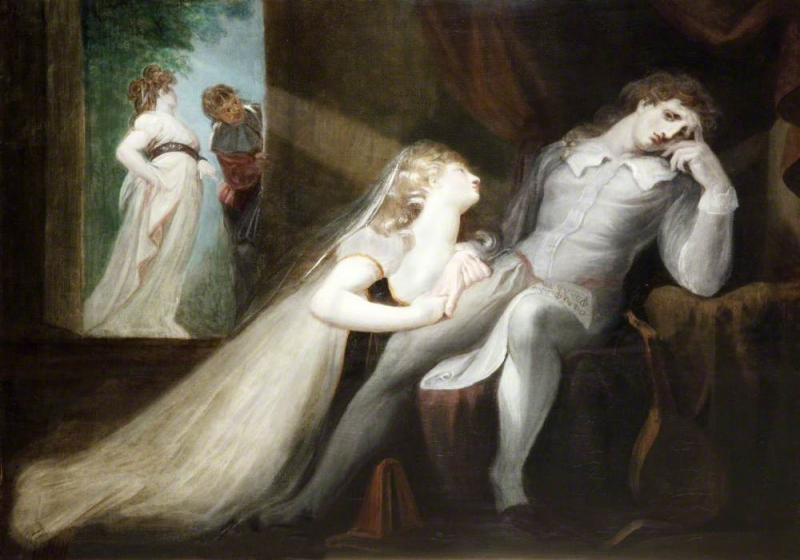
Photo: commons.wikimedia.org -
On December 9, 1608, John Milton was born at a home on Bread Street in Cheapside, London. His father, also named John Milton, was a scrivener by profession and a talented amateur musician and composer in his spare time. In the writings that have survived, Milton only makes a few passing mentions of his mother, Sara Jeffrey, but he is passionate in his appreciation of his father's learning, the creative abilities he believed had cultivated his own poetic leaning, and his generosity in raising and educating the young Milton. A happy youth was spent mostly in the study of languages, especially ancient and modern ones; under a number of tutors and later at St Paul's School, he mastered Hebrew, Italian, and French in addition to the required Latin and Greek of the time.
Milton wasn't a prodigy, but he was clearly a diligent and thorough scholar. His early years appear to have been spent watching his academically and socially talented peers succeed, while he pursued a difficult and protracted educational path that was later characterized as a poetic apprenticeship. Milton enrolled in Christ's College in Cambridge at the age of 16, a little late for the early seventeenth century (his best buddy, Charles Diodati, had just turned 13).
John Milton enrolled in Christ's College at Cambridge University in 1625. These years played a significant role in shaping the man Milton would become in the future. Milton's relationship with his school was tumultuous. He frequently remarked that he felt out of place and frequently got into arguments with other students and, in one instance, one of his tutors. Despite these challenges, Milton excelled in his studies and was among the top students in his class as he received a BA in 1629. Later, in 1632, he would get a Master of Arts degree.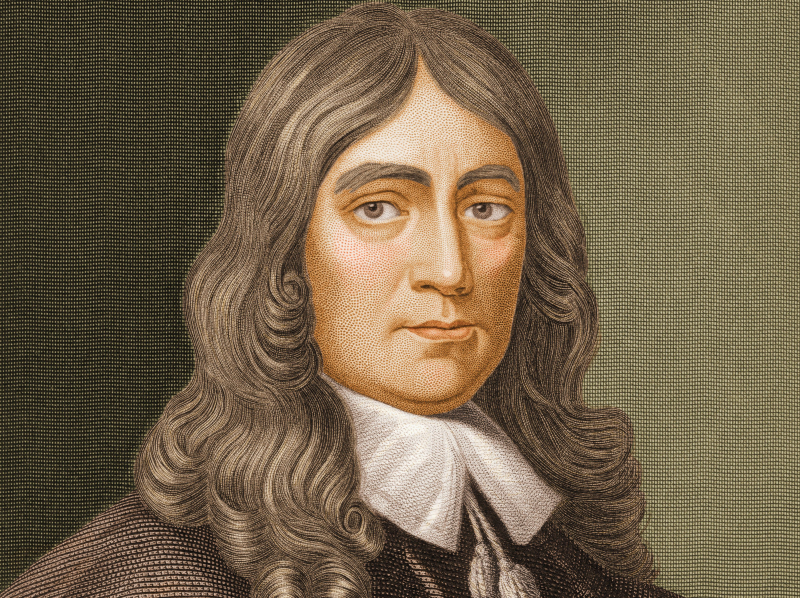
Photo: www.thoughtco.com 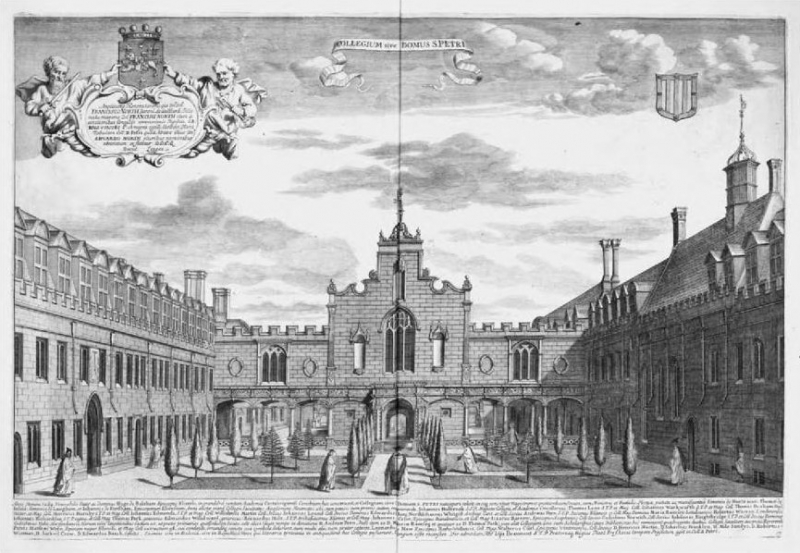
Photo: commons.wikimedia.org -
After earning his M.A., Milton studied independently for the following six years before embarking on some trips. In addition to studying literature, theology, philosophy, rhetoric, physics, and other subjects, he studied a great deal of both contemporary and classical literature. He also became fluent in many languages, both classical and modern. He continued to create poetry during this time, and two mosques, Arcades, and Comus were ordered by wealthy patrons.
Milton set out on his journey to Europe in May 1638. Before continuing on to Italy, he passed through France, making a stop in Paris. Touring in Italy and France. The journey was a thorough study tour that added actual experience to John Milton's theories. While in Europe, he had encounters with the leading thinkers and intellectuals of the day, including Galileo the astronomer. Defensio Secunda, his book, has the only description of his travels.
He came to Florence in July 1683, where the city's intellectuals and artists welcomed him. When he came to Rome many months later, he was welcomed as well because of his ties and reputation in Florence. In 1639, after learning of the outbreak of the civil war, he made his way back to England. He had meant to travel to Sicily and Greece, but after a friend died and tensions rose, he decided to return to England in the summer of 1639.
He allegedly met a lot of significant and influential artists when he was abroad. One of these meetings was with Gallileo, who is credited with having a significant influence on him. An interesting fact about John Milton is that in his most well-known book, Paradise Lost, he would subsequently make reference to Galileo.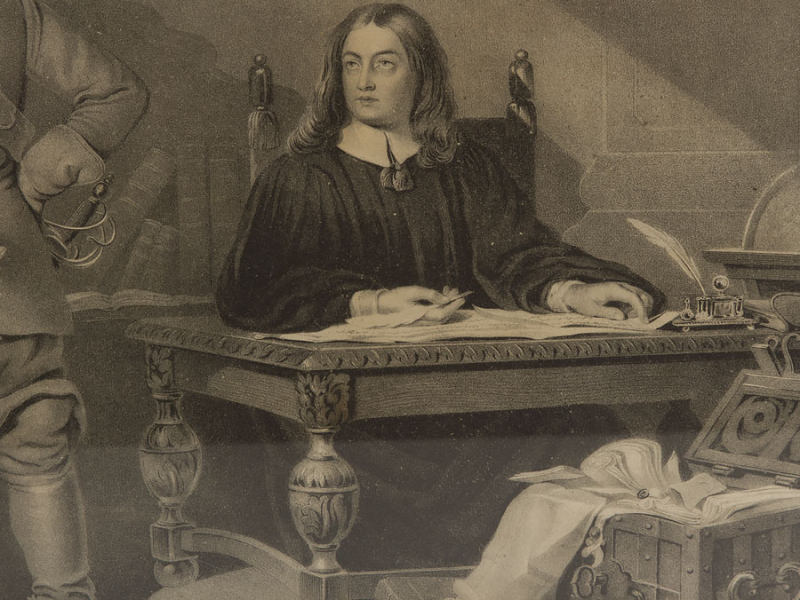
Photo: paradeantiques.co.uk 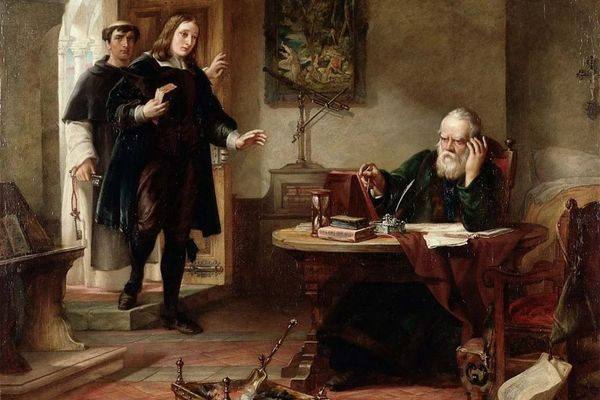
Photo: www.britannica.com -
Areopagitica, one of John Milton's most well-known writings, was a staunch supporter of the right to free speech. This was a protest against pre-publication censorship that also served as a manifestation of press freedom. Milton's pursuit of freedom was also visible in his writing, which was highly experimental and frequently tested predetermined boundaries.
The earliest extensive essay on press freedom that is still read today is John Milton's Areopagitica, which was written in 1644. The decision by Parliament to resume the licensing of all books and pamphlets served as the impetus for the article. This happened not long after the notorious Star Chamber and other institutions of crown censorship had been dissolved as part of a broader legislative challenge to royal authority.
The leaders of Parliament were troubled by the efflorescence of radical religious ideas spreading through the streets during the interim period following the abolishment of crown licensing, when a civil war was raging, as well as by the efficacy of propaganda being spread at the time by forces loyal to the King. This resumption of centralized thought control disillusioned Milton and many of his Puritan brethren. He begged the Parliament to trust the English people with unapproved publications and pamphlets in order to demonstrate their greater faith in them.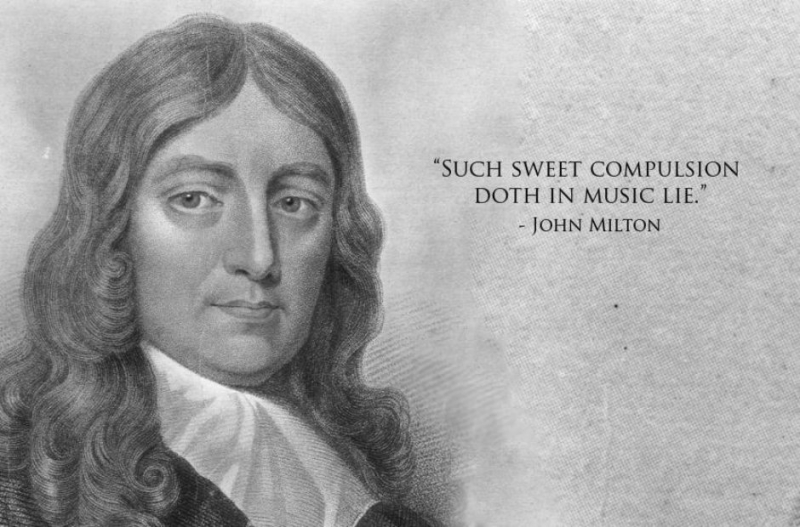
Photo: www.classicfm.com 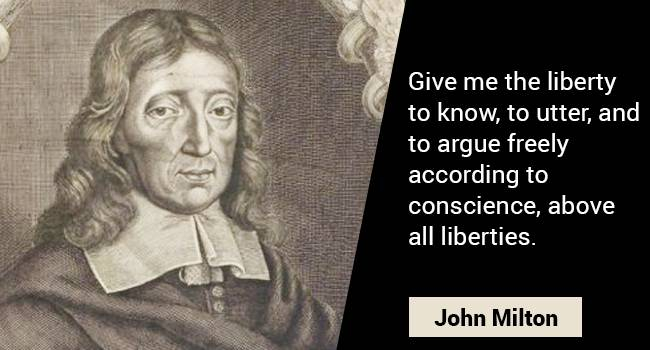
Photo: www.indiatoday.in -
One of the most significant and influential poets in English language and literature is without a question, John Milton. In both his life and the years following his passing, he has consistently had a significant impact on literature. Since it has been established that many authors and poets commonly wrote under the influence of this great epic poet, his reputation among readers and poets is well-known. Milton was a poet and well-known prose writer who wrote on a variety of subjects. He was also an artist. Because he had something to say about every aspect of life, he did not necessarily have a specific type of admirer or following.
One of the greatest English authors and poets to have ever lived is John Milton. He has been acclaimed as one of, if not the greatest English poet to have ever lived, and his work has served as an inspiration to innumerable writers.
Milton and his works were appreciated by a wide range of people, including politicians, poets, writers, and composers. The famed romantic poet William Blake is among the most well-known individuals to have been impacted by John Milton's work. Blake was moved by Milton's writing and, from a poetic perspective, regarded himself as Milton's son. The protagonist of his two-volume epic, Milton, is none other than John Milton.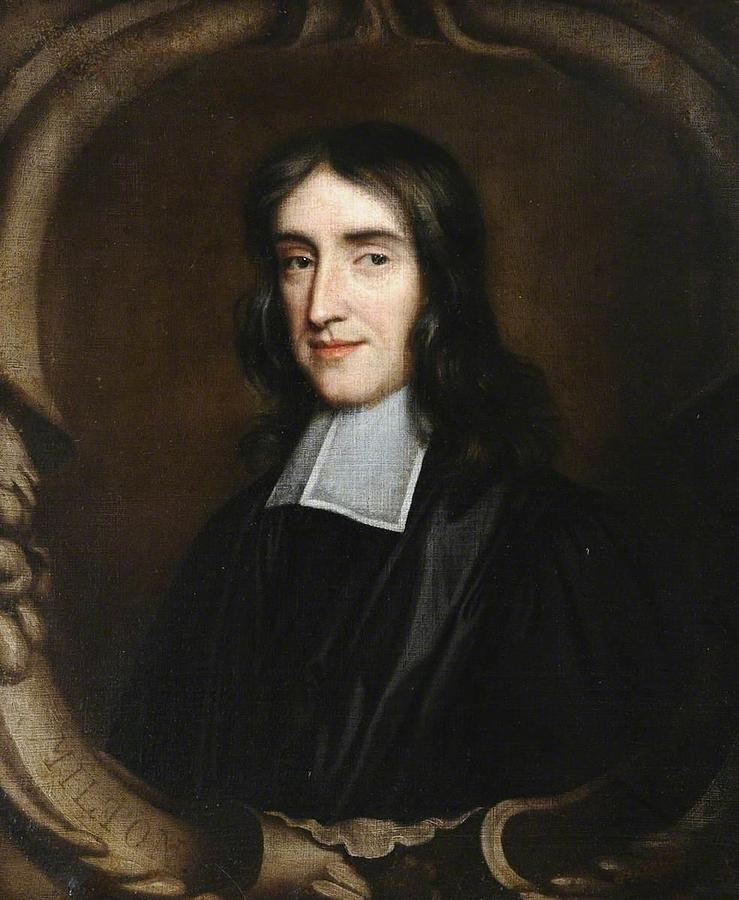
Photo: fineartamerica.com Video: Ad Maiora -
Following the English Civil War, John Milton established a political reputation for himself, which resulted in the state appointing him as the "secretary of foreign tongues" in 1649. Milton's duties included composing the foreign communications for the English Republic in Latin and creating propaganda. Official communication, the Letters of State, which were first published in 1694, provides documentation of his service to the government, which was primarily in the area of foreign policy. In his personal attack on Charles I, Eikonoklastes (1649), or Imagebreaker, which compared him to William Shakespeare's Duke of Gloucester (later Richard III), a consummate hypocrite, Milton vehemently defended Cromwell's administration.
John Milton authored several of his best works during this time period, and he was very harsh in his criticism of the English monarchy, which is an interesting fact about him. He would hold this position until Cromwell's death, at which point he would be forced to flee after a warrant was issued for his arrest, forcing him to go into hiding in 1660.
Milton served as the Commonwealth Council of State's Secretary for Foreign Tongues from 1657 to 1660, but after going completely blind, his assistants Georg Rudolph Wecklein, Philip Meadows, and, starting in 1657, the poet Andrew Marvell handled the majority of the job.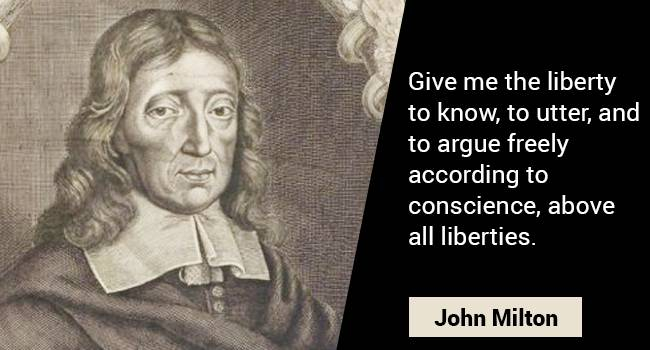
Photo: wikipedia Video: Isabella Rogers










